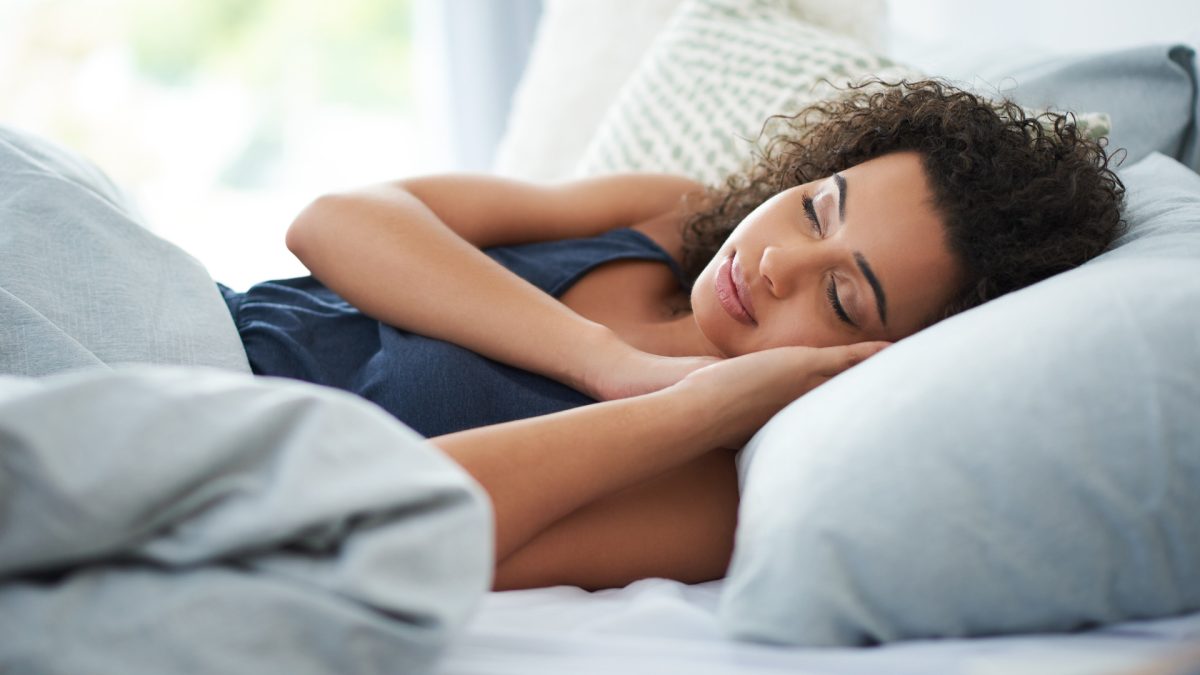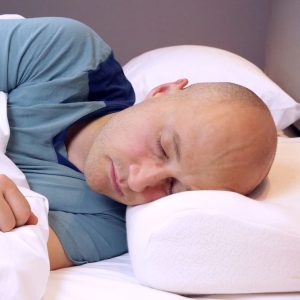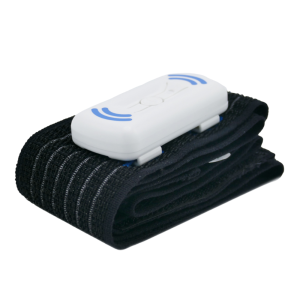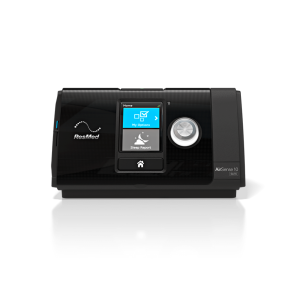Fact Checked
Intus Healthcare’s writers, customer service team, and sleep experts review and ensure this information is accurate.
Last updated on April 2nd, 2024 at 10:41 am
Do you ever wonder if women need more sleep than men? New research suggests that women tend to need slightly more sleep than men due to various physiological and hormonal factors (1). However, it is essential to note that individual sleep needs can vary significantly from person to person and can be influenced by factors such as age, lifestyle, health conditions, and stress levels.
Table of Contents
Why do women sleep more than men?
Hormones fluctuate during menstruation, pregnancy and menopause, which impacts the circadian rhythms and increases the need for sleep. Hormone levels play a huge part in the sleep cycle, affecting sleepiness, alertness, and hunger. Hormonal fluctuations can also make women more prone to sleep problems.
How much sleep do women need?
There is no specific number regarding how many hours of sleep women need compared to men. The average adult should sleep between seven to nine hours a night for optimal health and function. Research suggests that, on average, women need to sleep 11–13 minutes longer than men(2).

What causes snoring in females?
More men snore than women; however, snoring is not uncommon in women. Congestion, allergies, weight, age and hormonal changes can all cause snoring. It is primarily caused by the vibration of soft tissues in the upper airway during breathing while sleeping.
It’s important to note that occasional snoring is common and may not necessarily be a cause for concern. We have a page dedicated to tips to stop snoring on our website and a selection of anti-snoring devices.
Menopause and snoring
During perimenopause (pre-menopause) and menopause, sleep disturbances are more likely due to reduced oestrogen and progesterone(3). Progesterone affects a women’s breathing drive; before menopause, it helps to prevent snoring as it stops the tissues in the upper airways from relaxing too much. Lower levels of progesterone increase the relaxation of the tissue, causing snoring and pauses in breathing. The lower progesterone levels also increase the risk of developing Obstructive Sleep Apnoea (OSA).
During sleep, many menopausal women experience unexpected awakenings due to hot sweats. Some other common signs of menopause are insomnia, mood swings and brain fog.
Ways to stop menopause-induced snoring
HRT: Perimenopausal and menopausal women can visit their doctor to begin hormone replacement therapy (HRT) to manage their symptoms. HRT is an effective treatment that replaces low levels of oestrogen and progesterone.
Melatonin: Our body naturally creates the sleep hormone melatonin; our natural supply decreases as we age. Taking a melatonin supplement can help regulate sleep.
Soy: Products made of soy are high in phytoestrogens; consuming these products can improve cognitive functions and sleep. Phytoestrogens are natural compounds found in certain plants, including soybeans, that have a chemical structure similar to the hormone oestrogen.

Sleep Apnoea symptoms in women
Although there are more men with Obstructive Sleep Apnoea, there is a rise in the prevalence of the disorder in women. Untreated OSA negatively affects brain and heart health, increasing the risk of developing other conditions. Sleep Apnoea symptoms can differ between men and women. In women, signs may be more subtle or mistaken for other conditions, leading to misdiagnosis and delayed treatment. Symptoms include:
- Mood disturbances: OSA can contribute to mood swings, irritability, and depression in women.
- Waking up frequently during the night: Women with OSA may wake up multiple times, gasping for breath or choking.
- Daytime fatigue and sleepiness: Women with Sleep Apnoea may experience persistent fatigue, even after what seems like a full night’s sleep.
- Insomnia symptoms: Some women with Sleep Apnoea may report difficulty falling or staying asleep, which can be mistaken for insomnia.
Women are 40% more likely to have insomnia, with one in four experiencing the sleep disorder(4). They are also nearly twice as likely to experience depression and anxiety, two conditions linked to insomnia(5).
Practising good sleep hygiene, reducing alcohol intake and quitting smoking can help manage symptoms of OSA and help you sleep better.
Sleep Apnoea in pregnancy
Throughout pregnancy, higher hormone levels can cause mucus membranes in the nose to swell, increasing congestion, snoring and Sleep Apnoea. The added fluid weight during pregnancy puts more pressure on the airways, making breathing difficult during sleep. The baby’s development puts pressure on the lungs, reducing air volume and increasing breathing rate. Another reason for Sleep Apnoea in pregnancy is the increased likelihood of sleeping on your back, increasing the risk of an airway obstruction.
Untreated Sleep Apnoea during pregnancy can lead to various health issues for the mother, including:
- Daytime sleepiness and fatigue
- Increased risk of gestational hypertension and preeclampsia
- Increased risk of gestational diabetes
- Higher likelihood of needing a caesarean delivery
- Poor overall sleep quality and reduced well-being
If you suspect you have Sleep Apnoea, it is essential to seek medical advice; you may be recommended a sleep study and treatment options.
At-Home Sleep Apnoea Test
Symptoms of OSA include:
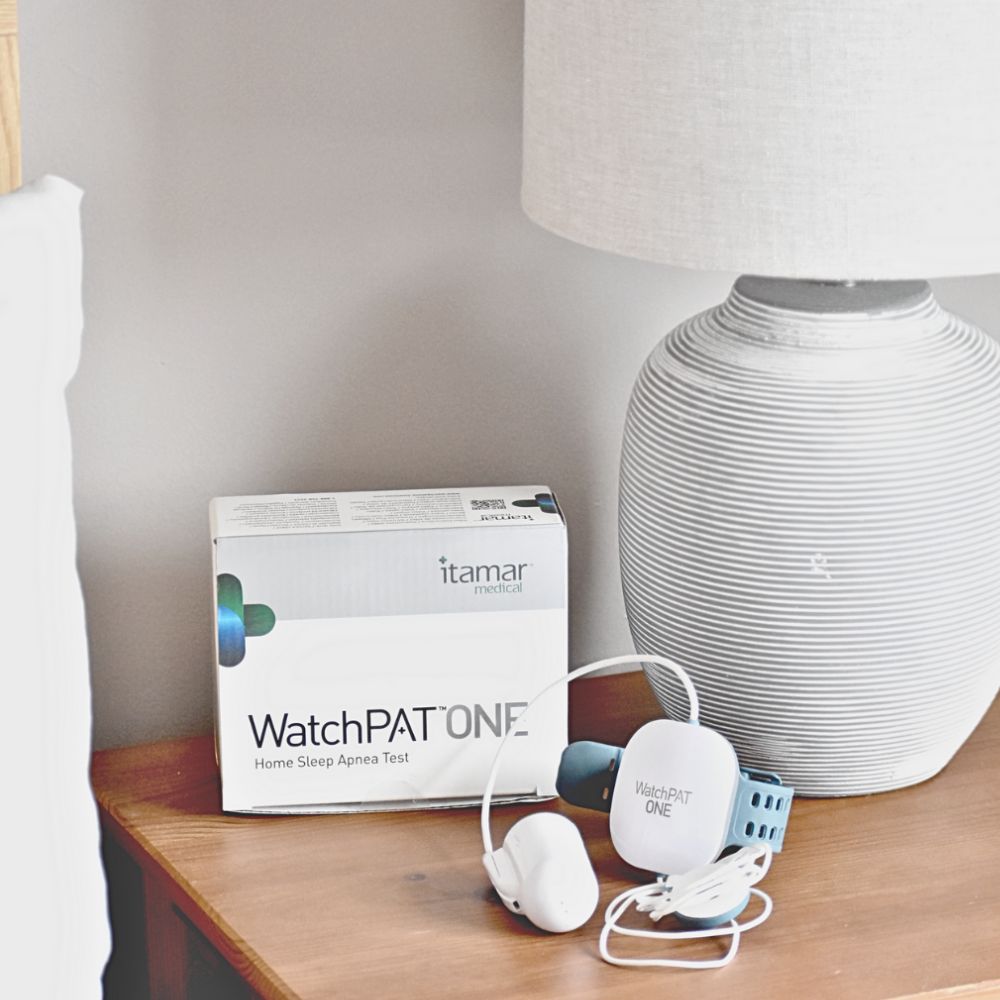
An In-Home Sleep Test is a quick way to determine if you have Sleep Apnoea; the test requires one night of sleep data recorded from the comfort of your home. One of our NHS-trained sleep technicians will assess your data and provide results within two working days of completing your test.
If you would like any help or advice, please do contact us.
REFERENCES
- Mallampalli, M.P. and Carter, C.L. (2014) ‘Exploring sex and gender differences in sleep health: A Society for Women’s Health Research Report’, Journal of Women’s Health, 23(7), pp. 553–562. doi:10.1089/jwh.2014.4816. Accessed: 04.08.23.
- Vitalijus Majorovas (2023) Do Females Need to Sleep More Than Males? Available at: https://healthnews.com/sleep/sleep-science/do-females-need-to-sleep-more-than-males/. Accessed: 04.08.23.
- John Hopkins Medicine Grace Weiwei Pien. How Does Menopause Affect My Sleep? Available at: https://www.hopkinsmedicine.org/health/wellness-and-prevention/how-does-menopause-affect-my-sleep. Accessed: 04.08.23.
- Mong, J.A. and Cusmano, D.M. (2016) ‘Sex differences in sleep: Impact of biological sex and sex steroids’, Philosophical Transactions of the Royal Society B: Biological Sciences, 371(1688), p. 20150110. doi:10.1098/rstb.2015.0110. Accessed: 04.08.23.
- Nolen-Hoeksema, S., Larson, J. and Grayson, C. (1999) ‘Explaining the gender difference in depressive symptoms.’, Journal of Personality and Social Psychology, 77(5), pp. 1061–1072. doi:10.1037/0022-3514.77.5.1061. Accessed: 04.08.23.

